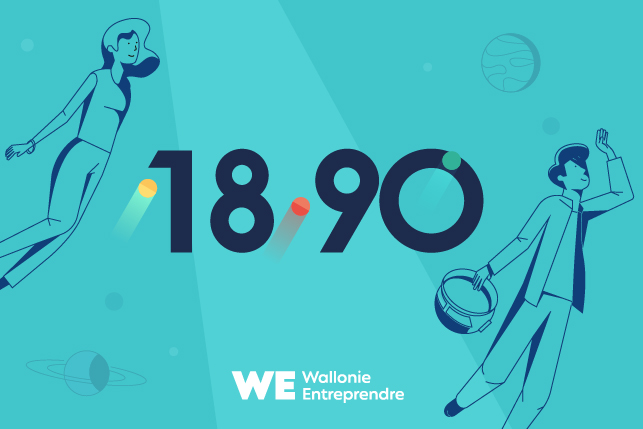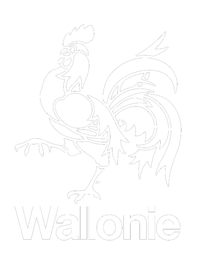Access to the optician profession
Are you thinking of starting a business as an optician? Or are you planning to add this service to your existing business? In this case, you need to prove that you have the skills to start up such a business. If you don't have a diploma or experience in this field, you can obtain a certificate by sitting the central jury exam.

Which activities require professional skills as an optician?
By definition, this includes sales, maintenance and repair:
- Articles designed to correct or compensate for human vision.
- Artificial eyes.
If in doubt, contact a Business Counter. They can advise you on your personal situation.
Which activities are exempt?
Access to the optician profession is not required for the following activities:
- The sale, maintenance and repair of:
- Monocular magnifiers;
- Binoculars;
- Microscopes and telescopes, not intended as visual aids for the visually impaired;
- Sunglasses without incorporating vision correction or compensation.
- The sale of:
- Contact lenses;
- Pre-assembled magnifying glasses.
If in doubt, contact a Business Counter. They can advise you on your personal situation.
- The sale, maintenance and repair of:
How can I prove my skills?
Skills can be proven in two ways:
- With an educational or training diploma;
- With 5 years' full-time or 8 years' part-time professional experience within the last 15 years.
If you don't have either, you can obtain a certificate by sitting the exam for professional optician skills (20305) before the Central Jury.
Frequently asked questions about access to the profession
How do I know if my diploma grants me access to a profession?
A database of diplomas, degrees and certificates from all over the world helps you determine whether your qualifications meet entrepreneurial requirements. You can look up your diploma to find out which activities it gives you access to. If in doubt, contact a business counter. The Central Jury Service is not able to validate your qualifications.
Other than the company manager, who else can bring entrepreneurial skills to the business?
For a self-employed person (natural person), this person can be:
- A spouse;
- A legal cohabitant;
- A partner who has been cohabiting with the individual for at least 6 months;
- A self-employed assistant, parent or relative up to the third degree;
- An employee with a permanent employment contract.
For a business (legal entity), this person can be:
- The management body (e.g.: a manager of a limited liability company or a managing director of a public limited company);
- A company director (e.g.: an active partner in a limited liability company or a director of a public limited company);
- An employee with a permanent employment contract.
If in doubt, contact a Business Counter. They'll be able to tell you if you have the required skills for your activity.
What skills are tested on the exam? What content does the exam cover?
The following subjects, applied to the optician profession:
- Mathematics;
- Physics;
- Chemistry;
- Biology: cytology, histology, genetics;
- Anatomy: organs and vital functions;
- Microbiology;
- General and ocular pharmacology;
- General and ocular pathology;
- Ocular anatomy and physiology.
Your knowledge of:
- Physiological, geometrical, physical and instrumental optics:
- Schematic eye models;
- Accommodation, convergence, ocular dioptrics;
- Entoptic phenomena;
- Retinal image quality, radiation and the eye;
- Binocular vision;
- Perception of colours and shapes;
- Visual field;
- Vision development and changes;
- Refraction through a spherical or flat surface;
- Parallel-sided strips,
- Thin and thick lenses;
- Concentrated, afocal-centric systems and applications;
- Spherocylindrical glasses, thin prisms, mirrors;
- Wave optics;
- Interaction between light and matter;
- Polarisation;
- Separating power and resolution limit;
- Photometry;
- Aberrations and diaphragms.
- Optometry;
- Low vision;
- Visual ergonomics;
Your technical knowledge of the manufacture, adjustment and fitting of:
- Glasses:
- The physical and optical characteristics of ophthalmic and addition lenses;
- The different types of glass;
- Ophthalmic prisms and the prismatic effect of lenses;
- Aspherical surfaces;
- Multifocal lenses;
- Problems inherent in the manufacture of corrective lenses;
- Filter glasses;
- Anti-reflective glasses and methods for eliminating reflections;
- Shock resistance;
- Fitting standards and diagrams.
- Contact lenses:
- Different types and materials;
- Optical characteristics;
- Maintenance and maintenance products;
- Complications during and after adaptation, and allergic reactions.
- Frames:
- Physical characteristics and biocompatibility of materials;
- Specifications and nomenclature for frame components;
- Head and face biometrics;
- Surface treatments;
- Measuring systems;
- Aesthetic considerations in frame selection.
- Visual aids for the visually impaired.
Your knowledge of the common instruments;
Your ability to:
- Perform all phases of correct glasses fitting, including preliminary measurements, the order form, fitting sheet, lens and frame selection, lens inspection and centring using a lensmeter, spherometer and observation, in compliance with current fitting techniques and standards;
- Perform symmetrical alignment, fitting and adjustment of visual equipment;
- Advise customers on ametropia, as well as the use, wearing, range, limitations and maintenance of visual equipment;
- Maintain and repair frames;
- For the visually impaired: select the appropriate visual aid according to the problem and prescription, take measurements, calculate equipment parameters, check, fit, test, adjust and maintain visual aids;
- Use standard equipment and instrumentation;
- For artificial eyes: carry out all operations required for the manufacture, installation and maintenance of artificial eyes, and give instructions to the customer;
- Inform the customer about the price and conditions of social security and insurance coverage for the various items of equipment;
- Apply Belgian and European manufacturing and assembly directives (ISO standards);
Your knowledge of professional ethics, including relations with customers, the medical profession and related professions, colleagues and healthcare insurance organisations
How does the exam work?
The exam is a written questionnaire.
Any questions? Any problems?
info.jurycentral.dgo6@spw.wallonie.be
Office hours:
Monday: 2 – 4pm
Tuesday: 2 – 4pm
Wednesday: 9am – 12pm
Friday: 9am – 12pm081/33.40.00
Our offices are located at:
Boulevard Cauchy 43
5000 NAMUR
Are you looking for other solutions for your project?

Receive personalised advice and quickly find the answers to your questions. Find the help you need on 1890.be.
Discover other solutionsOther state aid

Innovation, training, exports, consultancy... Take a look at all the state aid available to Walloon companies.
To the Midas database